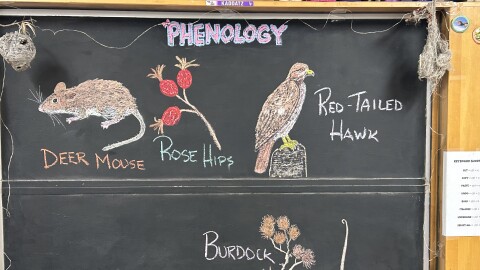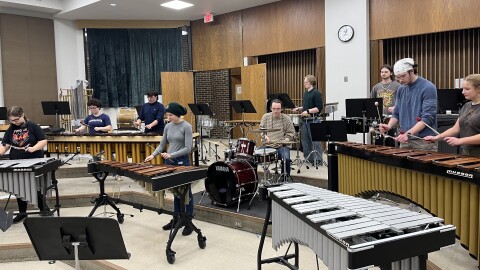Most Minnesota programs that rely on federal funding have enough money to mitigate the impact of a federal shutdown in the short-term, according to the state budget director.
But a prolonged shutdown — one lasting several weeks — would have serious consequences for programs like SNAP and WIC, which use mostly federal dollars to provide food assistance to families in need, said Ahna Minge in a press conference Thursday.
The federal shutdown began Wednesday, and there’s no end in sight: Senate Republicans need Democratic votes to pass a stopgap funding bill, and Democrats are demanding an extension of health care subsidies and a reversal of Republicans’ Medicaid cuts. Republicans haven’t budged.
Federal employees are facing furloughs, job reassignments, work without pay and the threat of being fired: President Donald Trump Thursday renewed threats to fire federal workers en masse during the shutdown, targeting “Democrat Agencies,” he wrote in a post on TruthSocial.
Russ Vought, the director of the federal Office of Management and Budget and a co-author of Project 2025, the roadmap for Trump’s second term, said the Trump administration is canceling funding for Green New Deal projects in blue states including Minnesota.
In Minnesota, most of the funding went to private entities, but “it looks like there may be a grant that impacts the state Department of Commerce that was affected as well,” Minge said.
Food benefits through SNAP and WIC look to be funded through the month of October, but money could run out if the shutdown extends into November, Minge said.
The federal government is expected to continue sending Social Security checks and making Medicaid and Medicare payments during the shutdown.
Dozens, or even hundreds, of state workers across agencies have spent weeks preparing for the potential impact of a shutdown. The budget agency’s analysis of the shutdown impact relies on historical trends from previous shutdowns.
“However, the most recent federal shutdown was a partial federal shutdown. Also, the current federal administration may not follow the historic playbook,” Minge warned.
Gov. Tim Walz criticized federal Republicans’ obstinacy on health care, contrasting Congress’s stalemate with the Minnesota Legislature’s work passing a bipartisan budget earlier this year.
“It’s difficult, on budgeting. It’s especially difficult when you have divided government — but they have one-party rule — but you still need to make sure you have to compromise,” Walz said. “You’re not going to get everything you want.”
Minnesota Reformer is part of States Newsroom, a nonprofit news network supported by grants and a coalition of donors as a 501c(3) public charity. Minnesota Reformer maintains editorial independence. Contact Editor J. Patrick Coolican for questions: info@minnesotareformer.com.
-
Itasca County Attorney Jacob Fauchald expects the case to eventually go to trial, but there may be more legal maneuvering before then. Martin's next appearance is set for February 2026.
-
-
Brian Pelander of Alden Township was fatally injured when a tree fell by him the morning of Nov. 26, 2025.
-
The executive director of the Nameless Coalition for the Homeless and former Beltrami County commissioner posted a video on social media, saying he will seek the seat.
-
During the week of Nov. 25, 2025, we enjoy reports of bobcat sightings, Tundra Swans and a lingering heron. Staff phenologist John Latimer responds.
-
-
-
Percussion gets the spotlight during Bemidji State's Percussion Ensemble concert at 7:32 p.m. on Dec. 4, 2025. Eric Sundeen joined “Area Voices” to discuss the upcoming performance.
-
KAXE's weekly list of concerts near you features Doyle Turner and Sarah Morris, Nate Boots and Mal Murphy, The Brothers Burn Mountain, and Dave Simonett.
-
Plus: New bridge opens over High Falls in Tettegouche State Park; grants aim to prevent garbage and waste on the ice from polluting Minnesota's water bodies, and the Beltrami County Historical Society seeks committee members for new exhibit.















